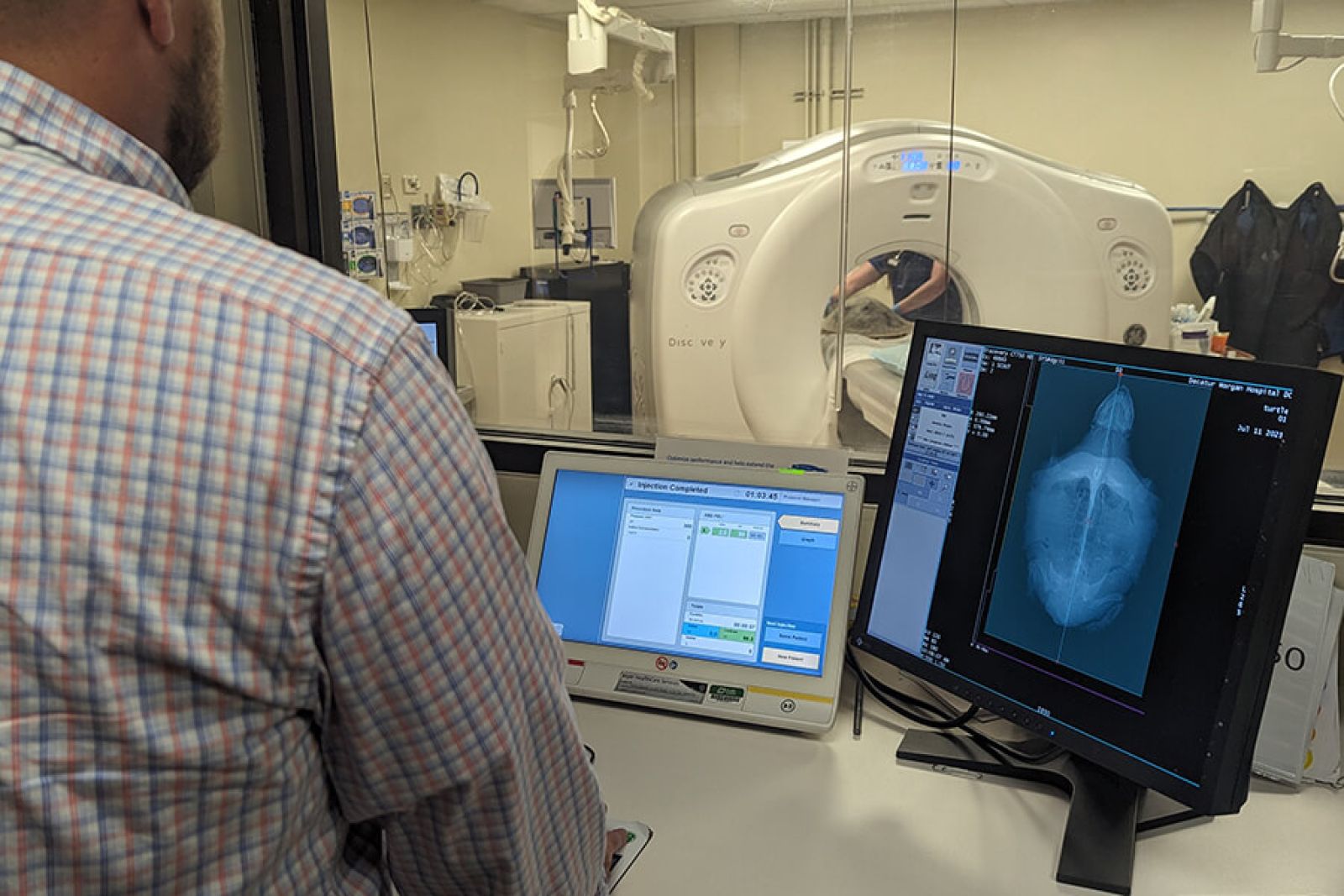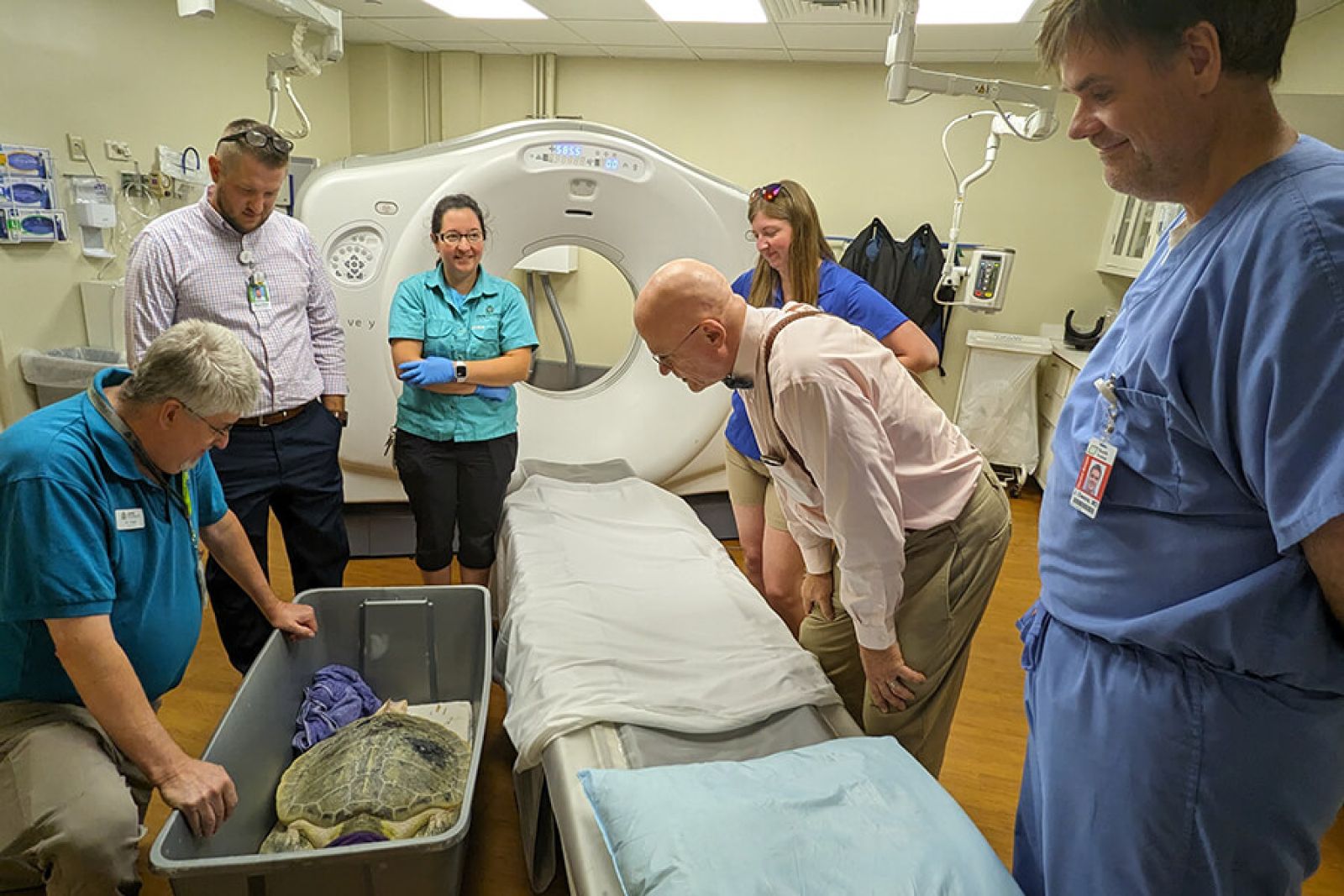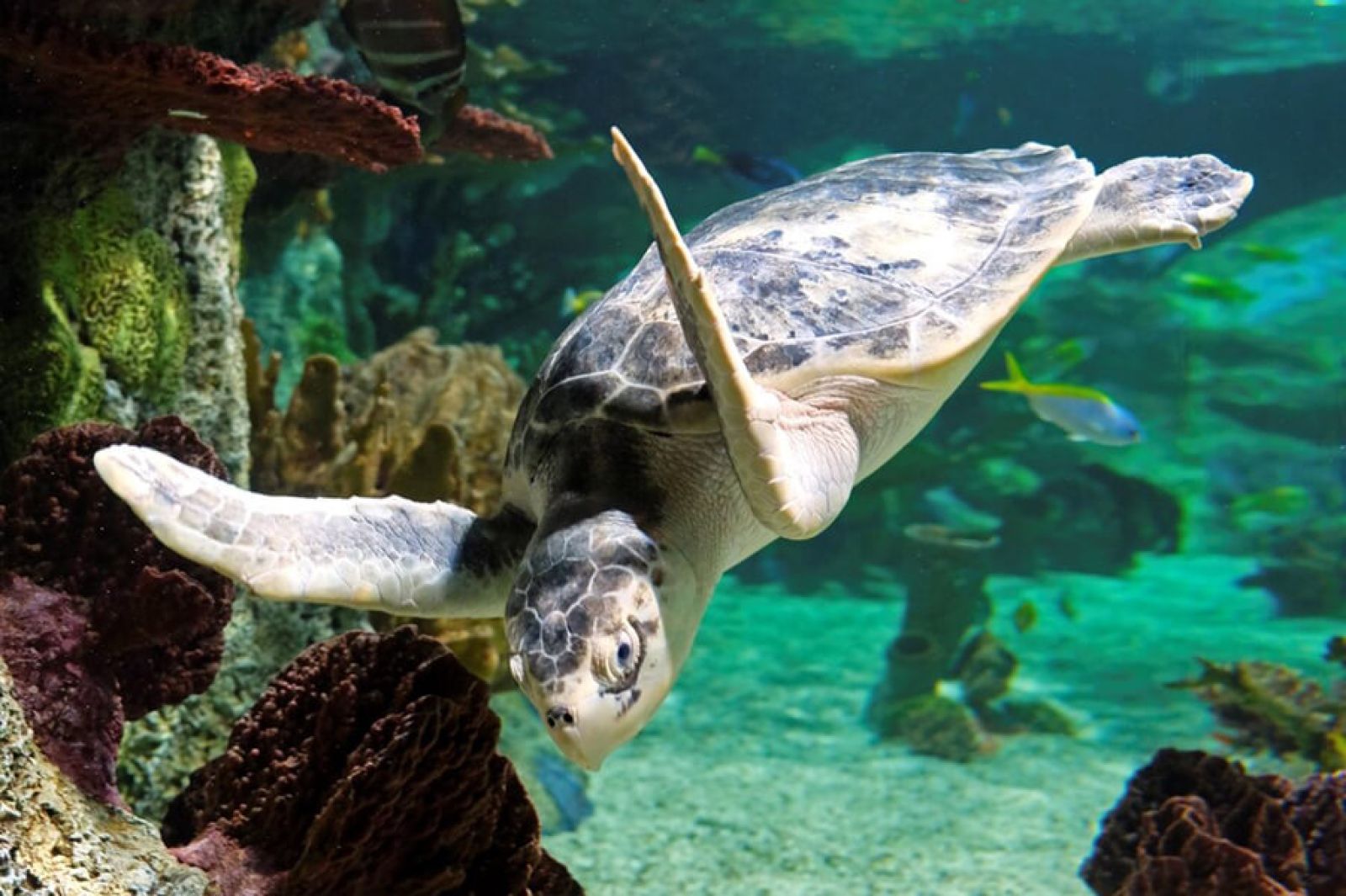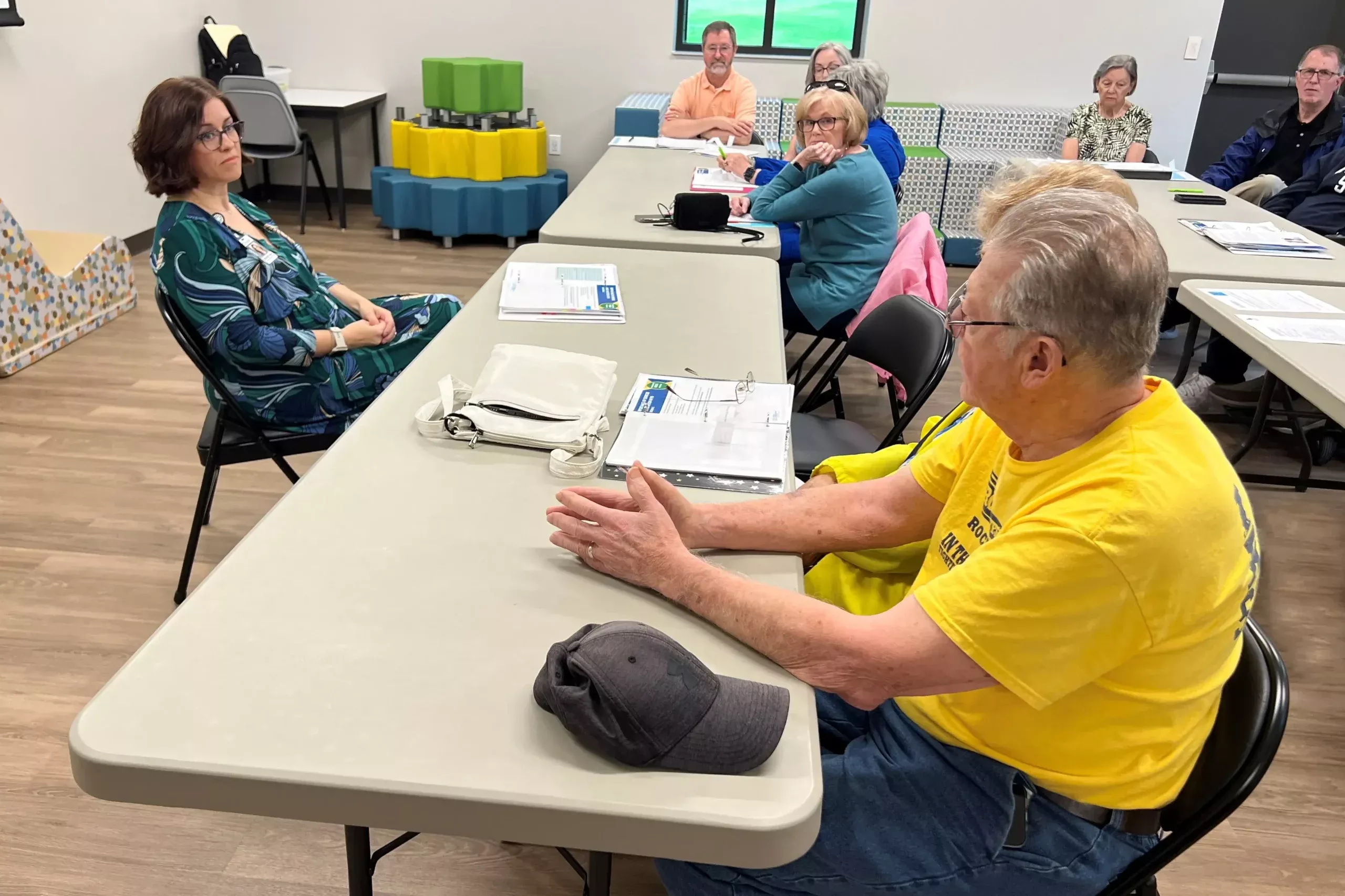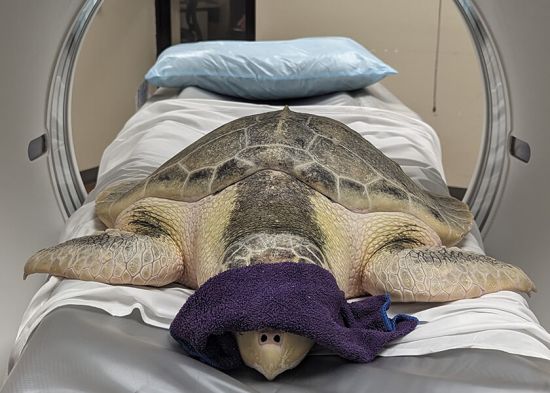
Kale the Sea Turtle’s life was going swimmingly until 2019.
That’s when Kale was hooked by a fisherman in Virginia’s Chesapeake Bay. The hook was so deeply embedded that he needed surgery, then another. The wound never fully healed, leaving Kale prone to infections.
In 2020, Kale was brought to Alabama to recuperate at Cook Museum of Natural Science in Decatur. Now, he is believed to be the first animal in the 43-year history of the museum to receive help from the imaging experts at Decatur Morgan Hospital.
On the morning of July 11, Cook Museum staff loaded Kale into a plastic tub and drove him to the hospital for a CT (computed tomography) scan to see how he is healing underneath his shell and thick, rubbery skin. The diagnostic study was an important step in getting Kale back on public display in Cook’s Ocean Tank.
“Reptiles are famous for being able to heal incredible injuries and incredible lesions, but in general it takes them a longer time,” says veterinarian Dr. Christopher Keller. “Their temperatures are cooler and they have slower processes in general.”
Director of Imaging Brandon Fisher and other members of Decatur Morgan Hospital’s imaging team doted on Kale throughout the roughly 10-minute CT scan, covering his eyes with a purple washcloth to help keep him calm. Radiologists Frank Scalfano, MD, and John Owens, MD, were also on hand.
“To my knowledge, this was our first turtle patient,” said Decatur Morgan Hospital President Kelli Powers. “I know our terrific staff in the Imaging Department took great care to make sure Kale had the best experience possible.”
Kale is a Kemp’s ridley sea turtle, an endangered species found mostly in the Gulf of Mexico and along the Atlantic coast, from Florida to New England. Like other sea turtles, they are long-lived with an estimated lifespan of 30 years or more. But unlike most other turtles, they have a unique synchronized nesting habit. Adult females gather off nesting beaches and come ashore in large groups, called arribadas, which means “arrival” in Spanish.
Cook Museum’s Facebook post on Kale’s visit to Decatur Morgan Hospital has more than 60,000 views. The story was picked up by the Miami Herald, Yahoo!Life Canada and media outlets as far away as India, making Kale perhaps the best known Kemp’s ridley sea turtle on the planet.
